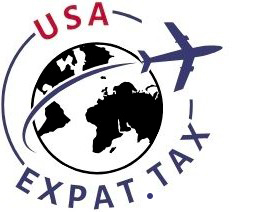Foreign Reporting
🧾 Understanding IRS Form
8938
Form 8938 is used by U.S. taxpayers to report specified foreign financial assets to the IRS, as mandated by the Foreign Account Tax Compliance Act (FATCA). This form is filed along with your annual income tax return and is separate from the FBAR (FinCEN Form 114).
👤 Who Must File Form
8938?
You are required to file Form 8938 if you are a
"specified individual" or a "specified domestic entity" and
your foreign financial assets exceed certain thresholds.
Specified Individuals Include:
- U.S.
citizens
- Resident
aliens
- Certain
non-resident aliens who elect to be treated as resident aliens for tax
purposes
Specified Domestic Entities Include:
- Certain
domestic corporations, partnerships, and trusts formed or availed of to
hold specified foreign financial assets
💰 Reporting Thresholds
The thresholds for filing Form 8938 vary based on your tax
filing status and whether you live in the U.S. or abroad.
|
Filing Status |
Living in the U.S. |
Living Abroad |
|
Single or Married Filing Separately |
$50,000 on the last day of the tax year or > $75,000 at
any time during the year |
$200,000 on the last day of the tax year or > $300,000
at any time during the year |
|
Married Filing Jointly |
$100,000 on the last day of the tax year or > $150,000
at any time during the year |
$400,000 on the last day of the tax year or > $600,000
at any time during the year |
Note: For specified domestic entities, the threshold is
$50,000 on the last day of the tax year or $75,000 at any time during the year.
🏦 What Assets Must Be
Reported?
You must report the following specified foreign financial assets:
- Financial
accounts maintained by foreign financial institutions
- Foreign
stocks or securities not held in a financial account
- Foreign
partnership interests
- Foreign
mutual funds
- Foreign-issued
life insurance or annuity contracts with cash value
- Foreign hedge funds and private equity funds
Note: Direct ownership of foreign real estate is not
reported unless held through a foreign entity.
⚖️ Form 8938 vs. FBAR (FinCEN
Form 114)
While both forms report foreign financial assets, they serve
different purposes and have distinct filing requirements.
|
Feature |
Form 8938 |
FBAR (FinCEN Form 114) |
|
Where to File |
With your annual tax return to the IRS |
Electronically with FinCEN |
|
Reporting Threshold |
Varies based on filing status and residency |
$10,000 in aggregate foreign accounts at any time during
the year |
|
Types of Assets Reported |
Broader range including foreign stocks, securities, and
entities |
Foreign financial accounts only |
|
Penalties for Non-Compliance |
Up to $10,000 for failure to disclose, with additional
penalties for continued failure |
Up to $10,000 per violation for non-willful violations;
higher penalties for willful violations |
It's possible to be required to file both Form 8938 and
FBAR.
⚠️ Penalties for Non-Compliance
Failure to file Form 8938 when required can result in
significant penalties:
- $10,000
for failure to disclose specified foreign financial assets.
- Additional
penalties up to $50,000 for continued failure after IRS notification.
- 40%
penalty on understatements of tax attributable to non-disclosed assets.
- Criminal
penalties may apply in cases of willful non-compliance.
📝 What Is the FBAR (FinCEN Form 114)?
The FBAR (Foreign Bank Account Report),
officially known as FinCEN Form 114, is a separate filing requirement from the
IRS Form 8938. U.S. persons must file the FBAR if they have foreign financial
accounts totaling over $10,000 at any time during the year, even if only for
one day. This includes bank accounts, brokerage accounts, mutual funds, and
certain other financial accounts held outside the United States.
The FBAR is filed electronically through the Financial Crimes Enforcement Network (FinCEN), not the IRS, and it's due by April 15 (with an automatic extension to October 15). Failing to file the FBAR can result in severe penalties, even if the failure is non-willful. It’s important to understand that the FBAR and Form 8938 have different thresholds, filing methods, and agencies, so some taxpayers may need to file both forms.
🧾 Other Forms May Be Triggered Too
Depending on your level of ownership or control, you may also need:
5471 ≥10% ownership in a foreign corporation
8865 ≥10% ownership in a foreign partnership
8858 Ownership of a foreign disregarded entity
🤝 Need Assistance?
Navigating international tax compliance can be complex. If you need personalized assistance, consider consulting with a tax professional experienced in foreign asset reporting.
